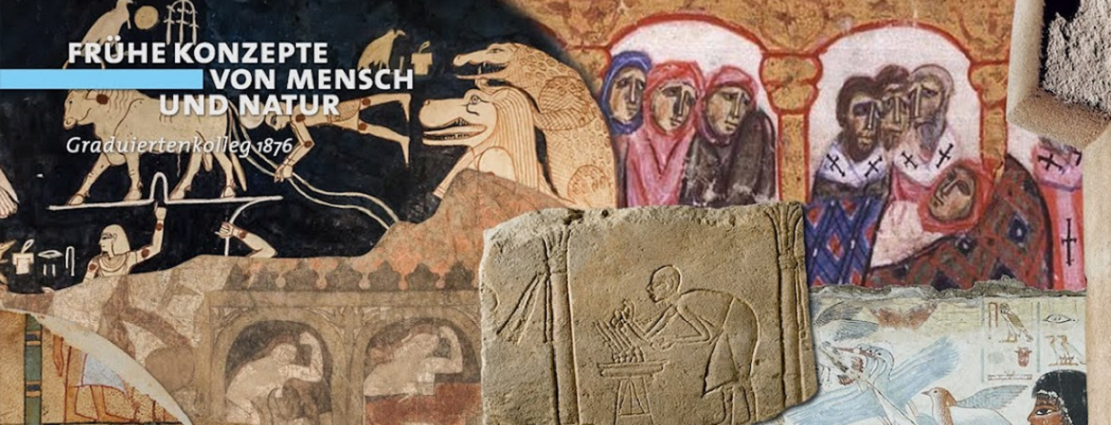The Research Training Group (RTG) 1876 was funded by the German Research Foundation (DFG). The participating disciplines were Pre- and Protohistorical Archaeology (Pleistocene Archaeology), Egyptology, Ancient Near Eastern Studies, Near Eastern Archaeology, Classical Philology, Classical Archaeology, Medieval German Studies and Byzantine Studies.
The RTG was interested in establishing where and when similar beliefs and concepts originated, whether this happened independently, or if such concepts were transmitted or even exchanged between early cultures, and in how, and why they then changed over time. The time span of the RTG extends from the dawn of history (ca. 100.000 years B.C.E.) to the Middle Ages within an area that comprises the ancient Near East, the Mediterranean, and Europe.
After ten years of funding from the German Research Foundation (DFG), the Research Training Group 1876 completed its work at the end of March 2024. An overview of the individual dissertation and postdoctoral projects can be found here, publications resulting from the RTG here.

